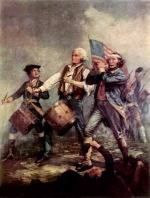|
This section contains 429 words (approx. 2 pages at 300 words per page) |

|
Many colonial Americans viewed the professional theater with deep suspicion. Especially during tough economic times, Quakers and Congregationalists, for example, argued that the stage distracted people from their work, wasted scarce money, and promoted dissipation. Much of this moral suspicion of the theater was informed by Protestant religious beliefs that, in associating spiritual devotion with self-denial, were inherently conservative: any forms of levity and mirth led easily to sin, and the toleration of public amusements could infect an entire community with the corrupt tastes of a few individuals. Graven images and secular music, no less than the theater, were condemned by Puritan ministers because they interfered with spiritual devotion and religious duty. Theater, however, was unlike the other arts an unqualified evil in Elizabethan and Puritan culture alike. In part this was because the theater became so popular among working-class peoples. The...
|
This section contains 429 words (approx. 2 pages at 300 words per page) |

|




